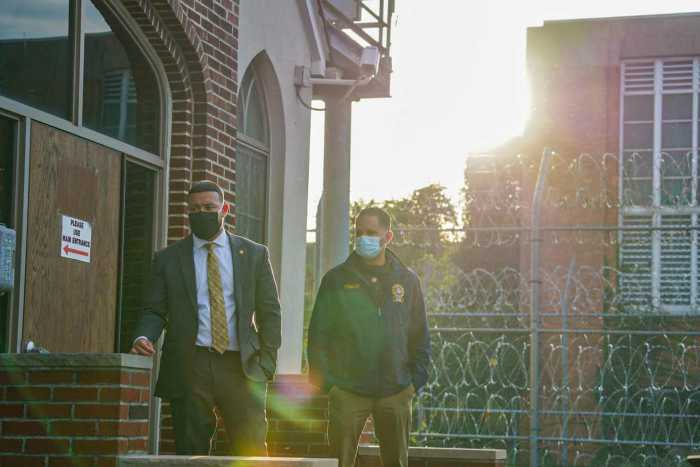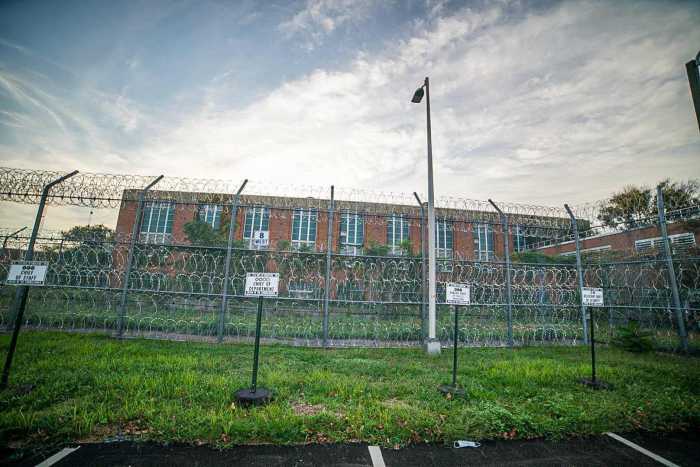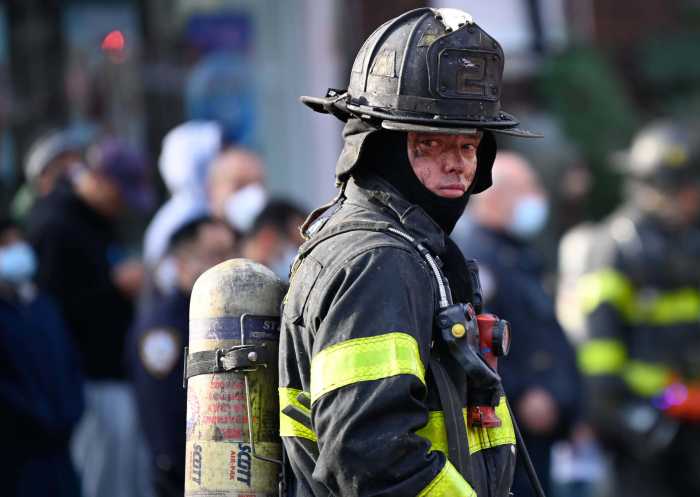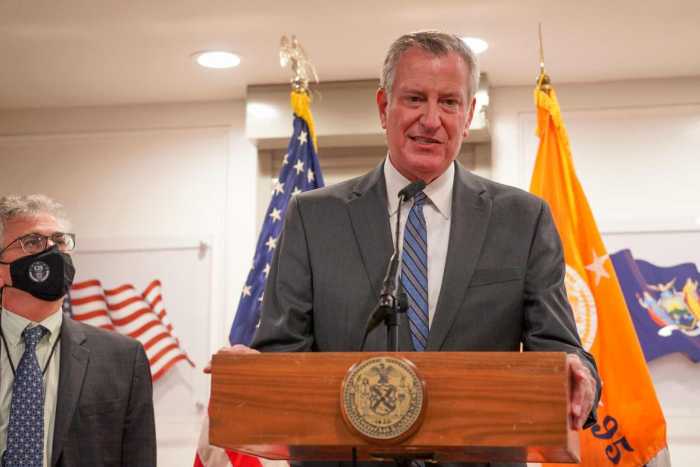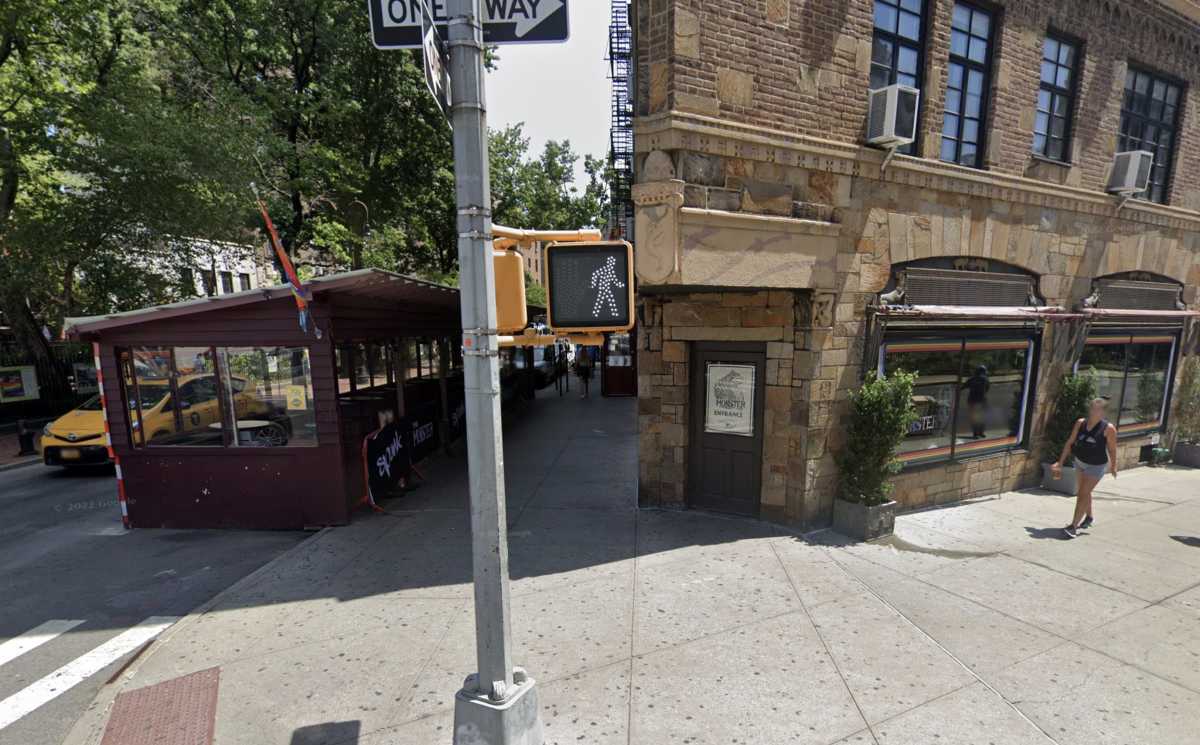Yet another Rikers Island inmate died Wednesday morning, the fifth fatality in the corrections facility this year, less than a day after the city and federal government agreed on a reform plan.
Mary Yehudah, 31, had been held at the Rose M. Singer Center since February on a first-degree robbery charge, according to the Corrections Department. She died at 5:11 a.m. on May 18 after being brought to Elmhurst Hospital for medical assistance.
The Corrections Department did not provide details as to why Yehudah had been brought to Elmhurst Hospital. The cause of her death is now under investigation, and her body was brought to the Office of the Chief Medical Examiner for an autopsy.
“Ms. Yehudah’s passing fills us with sadness, every life here is precious,” said Corrections Commissioner Louis A. Molina in a statement. “Our thoughts are with her family and loved ones.”
Yehudah’s death comes 11 days after the demise of Dashawn Carter while he was held on Rikers Island on May 7. A Board of Corrections report released three days later indicated that Carter had taken his own life, and a doctor on the board indicated that a lack of proper supervision and medical personnel contributed to Carter’s death.
Sharon White-Harrigan, the executive director of the Women’s Community Justice Association (WCJA), said Yehudah’s death further proves the need for the closure of the Rose M. Singer facility. The WCJA has been advocating through its #BeyondRosie campaign to shut down Singer in favor of a new trauma and healing justice center at the former Lincoln Correctional site on West 110th Street in Harlem.
“This tragedy is both heartbreaking and infuriating. No one belongs at Rikers, especially women and gender-expansive individuals when there is a clear and viable alternative that would end the decades of torture and suffering,” White-Harrigan said in a statement. “Governor Hochul and Mayor Adams must act quickly to transform the dormant Lincoln Correctional site at West 110th Street into a first-of-its-kind trauma and healing justice center. This new center can and must replace the Rose M. Singer facility.”
For years now, criminal justice advocates have called for the closure of Rikers Island, citing conditions dangerous to inmates and corrections officers alike. Last year, the facility saw no fewer than 16 inmate deaths amid calls from criminal justice advocates and elected officials to shut the facility down over decrepit conditions and ongoing violence endangering both the incarcerated and corrections officers alike.
Mayor Eric Adams and Commissioner Molina submitted an action plan to the federal monitor appointed to oversee improvements on Rikers Island. On Tuesday, the monitor — Steve J. Martin — agreed to the plan, calling it a “well-informed effort to identify specific immediate steps the City and Department of Correction must take to reduce the risk of harm in the City’s jails right now and to lay the groundwork that begins to disentangle the decades of dysfunction and mismanagement that characterizes this agency.”
The plan itself includes steps to “address the immediate risk of harm” to inmates and corrections officers, including revamping “the Department’s leadership structure, to improve the supervision of Department staff at all levels, and to improve staff utilization in the short term.”
Other parts of the plan, outlined in the monitor’s 40-page letter, include clearing away bureaucratic red tape that contributes to processing difficulties on Rikers Island; implementing a new staff management system at Rikers Island; improving security practices and managing people in custody; and improving compliance and reporting.
“I am grateful that the monitor’s team has recognized the city’s substantial efforts over the past four months to address the decades of dysfunction on Rikers Island. As they write, there are no quick or easy solutions to reforming Rikers, but the actions Commissioner Molina has taken have had a positive impact, and distinguish this effort from previous failed attempts,” Adams said in a May 17 statement. “Since taking office and working with the monitoring team, we have seen reductions in use of force and assaults on staff, increased searches for weapons and contraband, and fewer officers out on sick leave, but we must go much further. As the plan makes clear, with the proposed time, we have a strategy to aggressively untangle the dysfunction that has plagued the island and set it on a path of real and enduring reform. We appreciate the monitor’s partnership and recognition of the important work to build safer jails. We know that there is much more difficult work to be done, and the city is committed to doing it.”




